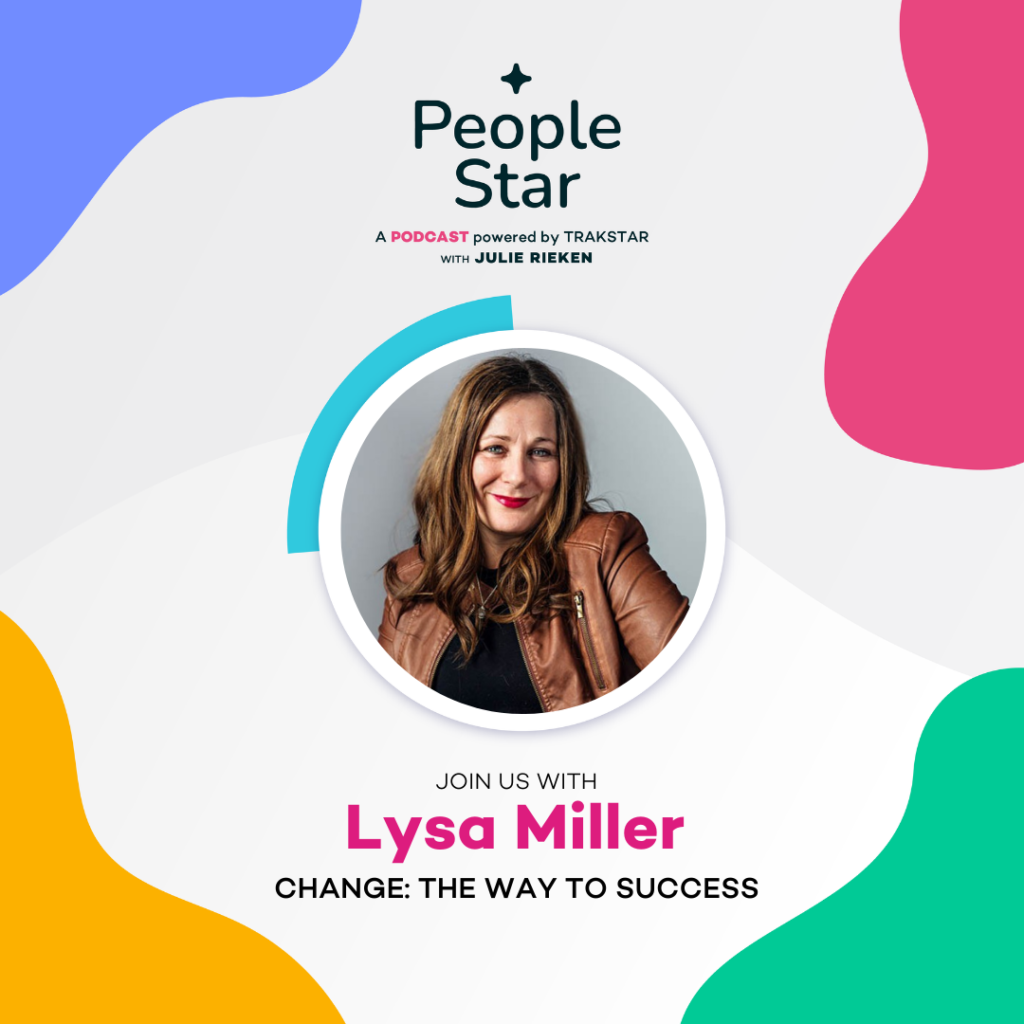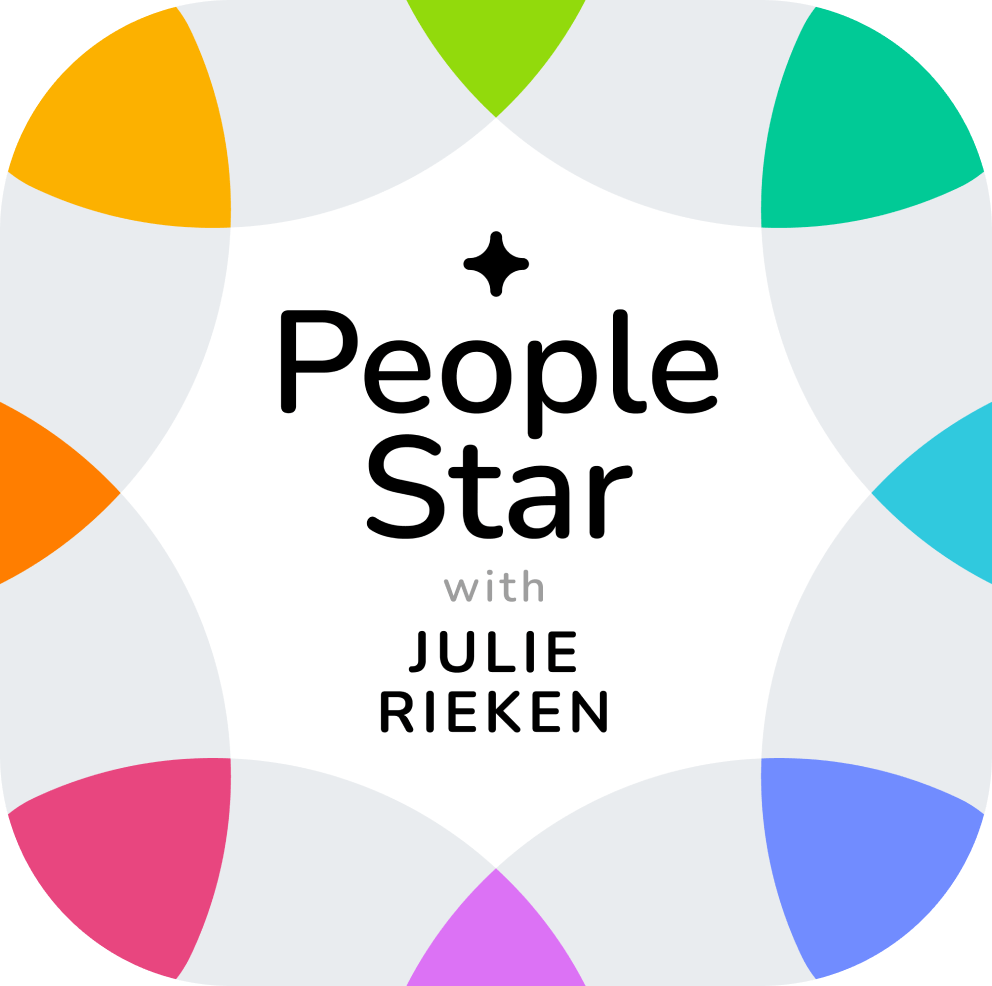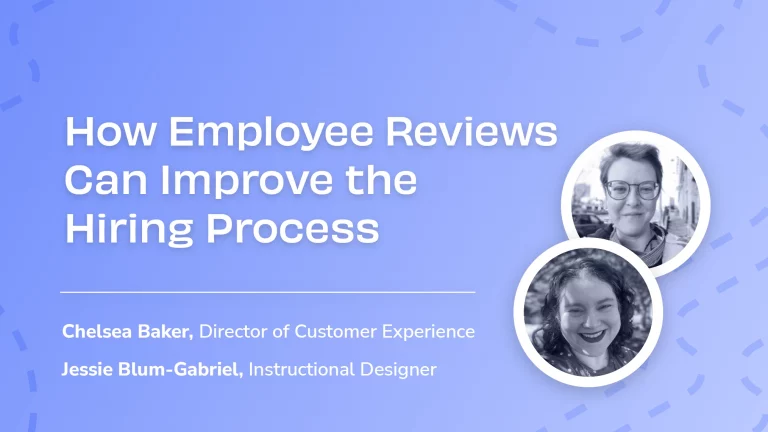PeopleStar_Lysa Miller: this mp3 audio file was automatically transcribed by Sonix with the best speech-to-text algorithms. This transcript may contain errors.
PeopleStar Podcast Intro:
Welcome to the PeopleStar Podcast. We deliver leadership perspectives from industry experts on their people, architecture, routines, and culture as they solve HRs newest challenges. And now your host, Julie Rieken.
Julie Rieken:
Hello listeners. Julie Rieken, host of PeopleStar podcast, and today I've got a terrific guest, Lysa Miller, she's the founder and CEO at an award-winning Web design and digital growth agency, Ladybugz Interactive out of Boston. And Lysa and her team founded a digital marketing agency that specifically serves biotech. So this is a really cool match, Lysa, and I'm excited to have you here, and could you just give us a little bit of, tell us a little bit more about who you are and about Ladybugz?
Lysa Miller:
Yeah. So I started my early life, you know, working in digital agencies and I worked at CVS Interactive. And when I started having kids, the full-time workforce didn't really work for me anymore, so I became a freelancer. And during those years of raising my kids, I just became really crafty and really great at all things digital and decided to venture out to start Ladybugz again, which I did for a few more years and merged with another agency. But during COVID, I decided to go back out on my own again to build a different kind of company, to meet the different kinds of needs that I was seeing in the workforce and in client needs also.
Julie Rieken:
Tell us about the differences in what you were seeing in the market. What were you seeing that you felt you were uniquely positioned to solve?
Lysa Miller:
And so I think as a new agency, we had the opportunity to do things differently from the ground up versus having an agency and trying to change things for an already functioning agency. And then we were seeing the same needs that we had with the clients out there too. So the need for flexibility, the need for expertise, the need for, you know, very being niche-based, the need for high-end services but without the high-end price tag. So we were seeing those on the client-side and then on our side we were seeing a need for freelancers to have more work because the agencies that they worked for weren't as busy, so they needed to expand who they were working for, we saw the need for people wanting to work in higher-end spaces like biotech and B2B, and because they didn't have experience there, you know, they weren't welcomed to do that work. So flexibility was also a huge thing. I basically started the company around my own schedule, a mom of four, and I had my two kids home all through COVID, so there was lots of things that aligned, it was a scary move, but it's just been going great, so I have no complaints.
Julie Rieken:
That's amazing. Lysa, tell us a little bit about, I've got to ask you, because it's so wonderful to see, and you and I both being women leaders, but women, agencies, entrepreneurship, and biotech, tell me about how these things come together?
Lysa Miller:
I have no idea. We had done a little bit of biotech work in the past and we had done some manufacturing work, too. So when I restarted the agency, I started with doing some digital marketing projects for women-owned companies, like we typically serve companies over 10 million, so we don't typically do small, small businesses. But we did see a need for women really needing a digital agency to come in and do some transformational work for them. So that seems to be a common theme with all of our clients where something is transformational. They're in an early growth period and something's changing, or they're like a legacy company or a family-owned business that's been around for 100 years, and they just really want to change how they're doing things digitally. So that opportunity was there and we saw that right away. But for some reason, we worked with a couple of biotechs right away and we just really did great in that space and other people saw the work and just kind of spiraled from there. We still do a little bit of B2B work and nonprofit and education, so we still serve those verticals. But most of our work is in early growth biotech. And we just, we are just having so much fun, it's really great.
Julie Rieken:
That's really amazing. So I'm hearing two things and I'd like to, I'd like to relate this back to your own experience. So you were serving some organizations that were looking to maybe change their face or put a new, a new look on, and in the meantime, you're building your own. What had you seen that you liked, that you wanted to incorporate as you built Ladybugsz What was what were your goals for your own organization?
Lysa Miller:
Yeah, I think a lot of it was, we did have similar goals and we could feel those pain points of those growing clients. So I think that where we were in our growth and where we are in our growth still speaks to our clients. So just that was really, really great being able to align. I think a lot of it was just constant improvement and iterative changes, like not coming in and telling companies, oh, you need to do this and you need to do that. But actually coming in, being a really good, sound listener and doing some really amazing discovery to help them decide where they want to go, not as the agency come in and telling them where to go. So that was really, really important to us to just really have that strong discovery process. These companies are growing fast, so they're always going to be changing, too. So I think in a lot of ways we felt like we also had to train our clients to think about things differently, that this is not like a one and done kind of project with our team, but we're all in this together and we're going to go through this process together as you change, we're going to help you change, and we're going to be your trusted partner until you get to a certain level of growth, which for biotechs is usually going public or getting bought, and then maybe they have a bigger agency where they get consumed into a bigger company. So that was kind of our whole, I guess that's kind of our selling feature or, or our niche or whatever we offer that differentiates us from maybe other agencies, so that's, that's kind of what we've been selling.
Julie Rieken:
That's amazing. And when you think about building your own organization, were there pillars or beliefs that you built Ladybugz on that are your core tenets as well?
Lysa Miller:
Yeah. So even ourselves, so we saw that we were growing, so we internally have the need to be doing iterative changes, we have the need to be always improving, always changing, and every time we do a project, we're always learning. And so I guess our mindset internally is that everything's changing all the time. And you know, sometimes when people hear change, it sets off like a negative emotion, right? Like, let's say you finish your website and then you're like, oh, well, we need to change something, immediately that sets off a negative emotion to the client or whatever. So we're trying to kind of change the mindset, not just of our clients, but of our team, too. This is a process, change is part of what we do every day, and we need to love it and embrace it, and honestly, you know, you do a better job when you do that. And that's the main thing that we've seen is we have better relationships with our clients, we have better relationships with our team members. And then the end product that we're getting at the end of the engagement is so much closer to what they envisioned themselves versus something we just gave them. So it's kind of like a beautiful thing in a lot of ways.
Julie Rieken:
It really is. I'm thinking a little bit about change and just you, you really came back into ladybugs and started growing even more in the last couple of years because the world had changed. And you mentioned people were looking for more flexibility and freelancers were looking for different kinds of spaces. Can you just talk to me about how you find talent? How do you find the right people for your organization that embrace this change and also maybe need some of the things that you're describing? How do you find people?
Lysa Miller:
I mean, I think that I targeted freelancers on purpose because freelancers are very entrepreneurial thinking. And so change for them is not always that challenging, and also to think more like a business owner versus an employee. So that was like really important because I wanted to give people autonomy, so I wanted to bring people into the organization that were like wanted autonomy, wanted to have some leadership, wanted to be able to try new things. And so this whole way that I attracted them was just it was a lot of it was people I knew from other agencies, it was people I had met along the way during my many years as an agency owner. And so somehow, you know, the Ladybugz team just manifested itself, I don't really know how it happened. It started with hiring one freelancer and then another freelancer, and then I think they decided like, we love Ladybugz, we love everything we do here, we get to work on big projects we wouldn't normally get to work on. It's really collaborative, we're really learning, we're getting to make decisions, and so I think the team really embraced it. The other part of it was we wanted to protect them, so in the freelance world, you know, agencies get to dictate what the employees make, they get to dictate when they work, they get to dictate the deadlines. We turn that story around and we started to let them tell us what they wanted, and everything that we do at Ladybugz is based on the team and their needs. So if somebody has a certain need, whether they need to make a certain amount of money on a project or they need certain people on the project, they get to define what that project looks like. We kind of like, we kind of like round up management of the company, so I'm not the one making the decisions, they are the ones making the decisions. And I think again, that was just such a great way to grow because they know what's going on in the bottom line, they know what's going on with the clients, they know what their needs are, and for them to be able to define that. So they're defining their own job, basically how much money they want to make when they want to work, what projects they want to work on. And for Ladybugz, it's been great too, because, you know, we might not want the same designer on every single project, so now we have access to like five or six different creative directors, so we can come in to any project. And if the client doesn't like one, the directors work or something or doesn't match that person. We have tons of people to be able to have them choose from and then it still lets these people be freelancers. So we're not trying to not hire people, basically what we're trying to do is let people work in their most genius zone that they're the best and let them really, really shine at what they're good at, and that is just I can't tell you how successful that's been for us.
Julie Rieken:
That's pretty inspiring working in their genius zone, I want to take that. ….
Lysa Miller:
So that's expression came from a coach that we work with. But the bottom line is, I mean, I've ADHD, so as a child, you know, it was always focused on like what I wasn't good at, I wasn't good at math, I wasn't good at organizing, I wasn't good at certain things, but I was awesome at lots of different things. And I feel like if somebody had to put my talent towards all the things I was awesome at, I would be even more awesome at those things now. And I just really believe in that and that your weaknesses, there's people that are good at your weaknesses and as a team, collaboratively, there's someone to pick up every different thing. And I really do feel when you have a team put together or a pod or whatever it is, different people on the team have strengths and they're bringing those strengths to the table. I don't, I don't think I've ever had to talk to anybody about a weakness. And it's, you become this kind of like equal ground where you're like, hey, other person, I'm not so good at this, is this your strength or what would you do? And there's no shame in like not knowing how to do something or there's not any shame and not being good at something, it's just let's move your energy, let's put that to somebody else. And the amount of collaborative learning that's going on in my organization is, I had one guy that was a creative director and now he does everything. He's helping me fine tune the agile process, he's creating different processes for clients to be more successful, I mean, he would have never been asked to do that anywhere else he ever worked. So I really love seeing people truly like grow because I think when you're really happy in your job, I mean, you're most happy when you're happy at home. I mean, if you're happy at home and things are good and you have flexibility, that makes a lot of people happy. But I want people to be happy in the work they're doing, I want them to enjoy it, be proud of it, be learning because there is a big piece to that. You know, you're working like 6, 8 hours a day every day. And if you're not happy there, you're not happy at home either, so just trying to kind of fill all of those needs that people have to feel good and to be happy, so.
Julie Rieken:
I love that. That's one of the things we talked about maybe just in our, in our first few minutes together was about how you had intended to build a space where you could have people with differences, but then to, I want to go back to capture the Genius Zone and it seems like you've really done that. And, and I thank you for that story. And I guess I just want to close on, on something that I'm personally interested in, and I hope it's okay to ask this, but I think about the act of being an entrepreneur and leading and building your own organization is an act of courage. Where does your courage come from? This is, it's a, it's an act of courage, how do you do it? Where does it come from?
Lysa Miller:
I just think that I really wanted to help people. Like I saw the need for people to have something like this and it just was all timing. And, you know, how it all came about was never how I envisioned it. But I think that I finally get to be the leader that I never really got to be. Whether I was not mature enough or I didn't have the experience, or I just never came to the realization that that's who I was. But now I realize that, you know, we're all leaders and we just need to bring the leader out in each other. And I think that's truly what makes a company really, really successful is just bringing that out in people. So where I got the courage, I don't know, I guess I, I fell into it. And then once I started doing it and started embracing it, I got the bug and I was hooked and I got the Ladybug, I guess.
Julie Rieken:
That was so good. And on that, I'd like to wrap, what a cool story, thank you for sharing that!
Lysa Miller:
Thank you.
Julie Rieken:
This has been a really fun conversation and I'm going to wish Ladybugz all the best. And I just have really enjoyed hearing your stories and the advice and your journey today. this has been great, thank you.
Lysa Miller:
Thank you so much for having me!
PeopleStar Podcast Outro:
Thanks for listening to the PeopleStar podcast. For the show notes, transcript, resources, and more ways to get a seat at the table, visit us at Trakstar.com/Podcast.
Sonix has many features that you’d love including secure transcription and file storage, enterprise-grade admin tools, powerful integrations and APIs, automated translation, and easily transcribe your Zoom meetings. Try Sonix for free today.




